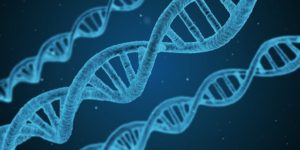
Synthetic Cell - the Next Step to Creating an Artificial Life?
 06. 03. 2018
06. 03. 2018

Genome researcher J. Craig Venter has taken further steps in his efforts to create artificial life by synthesizing the complete genome of a bacterium and using it to control a cell. Dr. Venter calls the result "synthetic cell“And presents its research as a significant achievement that will pave the way for the creation of useful microbes to produce products such as vaccines and biofuels.
At a press conference, Dr. Venter described the artificial cell as the first self-regulating species on our planet whose parent is a computer. "This is a philosophical advance as well as technical progress," he said, adding that the synthetic cell raises new questions about the nature of life. Other scientists agree that it has achieved technical success in synthesizing a large piece of DNA with a length of one million genes, exactly enough to replace DNA in the original cell. Some scientists consider this approach to be unintended because it will take years before new organisms can be proposed, but only progress has been made towards the production of biofuels by conventional genetic engineering methods in which only several genes change in existing organisms (bacteria) . The story clearly shows that there are some extremely important things Venter has not done so far.
 The goal of Dr. Ventera is to achieve complete control of the genome of the bacterium by first synthesizing its DNA in the laboratory and then proposing a new genome, free of many original functions, and equipped with new genes to control the production of useful products. "It's very challenging to be able to reconstruct and produce each letter in the genome because it means you can put it in different genes," said Gerald Joyce, a biologist at the Scripps Research Institute in La Jolla, California.
The goal of Dr. Ventera is to achieve complete control of the genome of the bacterium by first synthesizing its DNA in the laboratory and then proposing a new genome, free of many original functions, and equipped with new genes to control the production of useful products. "It's very challenging to be able to reconstruct and produce each letter in the genome because it means you can put it in different genes," said Gerald Joyce, a biologist at the Scripps Research Institute in La Jolla, California.
In response to this scientific report, President Obama asked the White House Bioethics Commission to complete a study on the problems raised by synthetic biology within six months and report its findings to it. He said the new development was a matter of real concern, but did not elaborate further. Three years ago, Dr. Venter took the first step toward this goal, which suggested that the natural DNA of one bacterium could be inserted into another and take control of the host cell. Last year, his team synthesized a section of DNA with 1,080.000 bases - the chemical units that make up DNA.
In the final step, a team led by Daniel G. Gibson, Hamilton O. Smith and Dr. Ventre, in the Science magazine report, that synthetic DNA takes over the bacterial cell as well as its natural DNA, then the cell generates the proteins specified by the genetic information of the new DNA instead of its own natural DNA. The team ordered a DNA sequence of length 1000 units from Blue Heron, which specializes in DNA synthesis and developed a technique for building shorter sections of the complete genome. The cost of the project was 40 of millions of dollars, most of which was paid by Synthetic Genomics, founded by Dr. Venterem.
Bacteria used by the Dr. Group Ventera, however, are unsuitable for the production of biofuels. Dr. Venter said he would focus on the formation of various organisms. Synthetic Genomics has a contract with Exxon for the production of algae biofuels. Exxon is ready to spend up to $ 600 million if all its conditions are met. Dr. Venter said he would try to create an entire algae genome so that we could change 50 to 60 different parameters for their growth, creating superproductive organisms to produce fuel. On his yacht voyages around the world, Dr. Venter analyzed the DNA of many microorganisms in seawater, and now has a library of about 40 million genes, mostly derived from algae. These genes will be a source to ensure that the trapped algae produce useful chemicals.
"In my opinion, Craig Venter is a little overwhelmed by the importance of this," said David Baltimore, a Caltech geneticist. The result was described as a technical, "hussar bit" rather than a scientific breakthrough. "He did not create life, he just imitated it," said Dr. Baltimore. Access Dr. Ventera is not necessarily a way to produce useful microorganisms, said George Church, a genome researcher at the Harvard Medical School. Leroy Hood, of the Institute of Systemic Biology, Seattle, Ventera was dazzling, but she said we first need to understand lower-level genes and networks before trying to design the whole organism from scratch.
In 2002 Eckard Wimmer of the State University of New York, he synthesized a polio virus at Stony Brook. Using this genome, he created a live virus that infected and killed the mouse. The work of Dr. Ventera on bacteria is basically the same, except that the polio virus genome has only 7 500 units and bacteria genomes are longer than 100x longer.
The Environmental Friends of the Earth group condemned the synthetic genome as a dangerous new technology and said that Venter should stop all further research until sufficient safety regulations. The synthesized genome of Dr. Ventera is copied from a natural bacterium that infects goats. Venter said he selected 14 genes that could be pathogenic before copying DNA, so the new bacterium, even if it escaped, probably wouldn't harm the goats.
The statement of Dr. Ventera, having created a synthetic cell, worries people who think it means he has created a new life form or an artificial cell. "Of course that's not true, because its starting material is a biological form of life," said Dr. Joyce of Scripps. Dr. Venter only copied DNA from one type of bacterium and inserted it into another. The second bacterium produced all the proteins and organelles in the so-called synthetic cell, according to the specifications encoded in the structure of the inserted DNA. "I'm afraid some people will conclude that Venter has created a new life form," said Jim Collins, a biotechnology engineer at Boston University. "What he has created is an organism with a synthesized natural genome. However, this does not mean creating life from scratch or creating a new life form, "He said.





 10
10